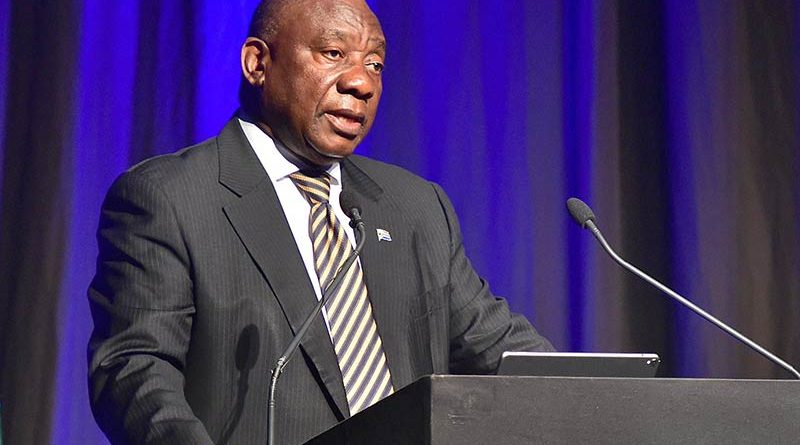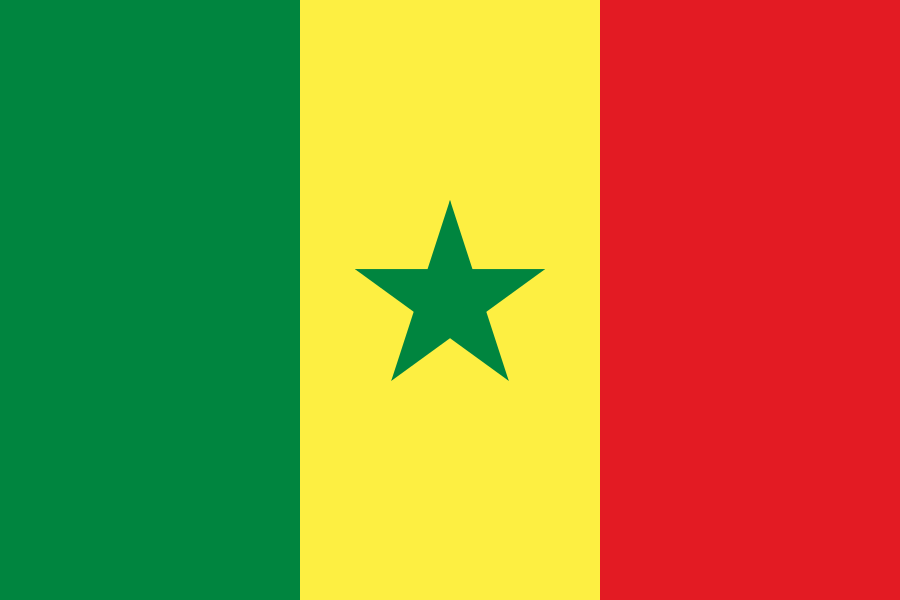Seychelles began vaccinating its population against the coronavirus on January 10, 2021, making the Indian Ocean archipelago the first African nation to do so. The country’s leaders, including president Wavel Ramkalawan, got the first doses of the vaccines made by Chinese drug maker Sinopharm. The health minister of Seychelles said the batch was donated by the United Arab Emirates.
Source - South China Morning Post
After experiencing 190 000 new infections in 11 days and overwhelmed hospitals driven by the new COVID-19 variant, South Africa has closed its borders for 33 days and retained tough measures, which includes a ban on alcohol sales as well as closed beaches and public parks.
In a special address to the nation – his second in 15 days – South Africa’s President Cyril Ramaphosa said 20 land ports of entry, which includes Beit Bridge, used by Zimbabweans and Lebombo, used by Mozambicans, would be closed until February 15 for general entry and departure.
An exception would be made for the transportation of fuel, cargo, goods, emergency medical attention and the return of South African nationals and residents. Foreign nationals wishing to depart to their countries, diplomats and children from neighbouring countries attending school in South Africa will also be exempted.
He said most of the strict measures announced on December 28 would remain in place.
“All beaches, dams, lakes, rivers, public parks and public swimming pools in hotspots areas will be closed. As before, botanical gardens, national parks, other parks where access control measures and entry limitations are in place may remain open to the public.
“Given the risk of widespread transmission, most indoor and outdoor gatherings will not be permitted This includes social gatherings, religious gatherings, political events, traditional council meetings and gathering at sports grounds,” Ramaphosa said.
He said restrictions on funerals, in terms of which only 50 people can attend under strict COVID-19 protocols, would remain in force. The overnight curfew will also remain in place and will now be from 9pm to 5am.
The president also revealed that 4600 people have died since the new year, and more than 15 000 admitted to hospitals, placing a massive strain on health facilities.
He said the new variant, titled 501.v2 by scientists, was responsible for the spike in infections. “Research undertaken by our scientists has shown that the massive increase in infections is largely driven by a variant of coronavirus known as 501.v2. This variant was first identified in South Africa in November.
“There is an intensive focus in our health facilities on increasing oxygen supply and activating field hospital beds. Additional posts that were vacant are being filled, and personal protection stocks are being monitored with the Office of the Health Standards Compliance. There are currently 15 000 people with COVID-19 in hospitals nationally, placing a considerable strain on health facilities, personnel and equipment. Around a third of all COVID-19 patients in hospitals are on oxygen,” Ramaphosa said.
Source - The African Mirror
MILLIONS of South Africans will have their COVID-19 vaccinations subsidised by medical schemes that pool health insurance premiums through an agreement with the government, a top medical scheme administrator said.
Under the arrangement, medical schemes will pay above cost for doses for their members – roughly 7 million adults over the age of 15 – subsidising procurement for another 7 million adults who are without private medical cover, Ryan Noach, chief executive of the country’s largest medical scheme administrator, Discovery Health, said.
In all, vaccines for around 30% of the country’s adult population would be financed by the agreement.
Africa’s most advanced economy aims to vaccinate a minimum of 67% of its population against the coronavirus to reach herd immunity, Health Minister Zweli Mkhize said on Sunday.
But it is yet to start vaccinating or receive its first doses, and some local health experts and trade unions have publicly criticised the government for moving too slowly with its vaccine strategy.
Noach told Reuters on Wednesday that the cost to medical schemes of buying the vaccines could reach a maximum of 7 billion rand ($464.2 million) but maybe much less. That was “completely digestible”, he said, since it represented less than 2% of gross annual premiums.
Many medical schemes ended 2020 with large surpluses because non-coronavirus related healthcare was drastically reduced during the pandemic, he added.
“What’s important is the funding is there, and we’ve got to secure offtake of the vaccines,” Noach said.
South Africa intends to procure its vaccines centrally, and negotiations with vaccine manufacturers are being handled by the government. Local health regulator SAHPRA is yet to approve any vaccines for use but has said it will fast-track applications.
Apart from the agreement with medical schemes, the government plans to source vaccines for 10% of the population via the COVAX Facility, a global vaccine distribution scheme co-led by the World Health Organization. It is talking to large local businesses about contributing funds towards the remaining vaccines it needs to procure.
Noach said the arrangement between medical schemes and the government would not affect profits at Discovery Health, part of Johannesburg-listed financial services group Discovery, because the administrator earns a fixed fee to look after its medical schemes.
It made sense from both humanitarian and economic angles in that it would save lives and cost far less than another national lockdown, he said.
Source – Thomson Reuters Foundation
SENEGAL’S President Macky Sall has announced a new state of emergency in response to record cases of coronavirus sweeping parts of the West African nation.
Starting today, a nighttime curfew will be enforced in the regions of Dakar and Thies, which Sall said are home to more than 90% of cases. Mask-wearing will be mandatory and large gatherings banned.
The new measures come six months after the first state of emergency was lifted in an attempt to bolster an economy hit hard by restrictions on movement during the first wave of the virus.
Senegal has reported 19,964 COVID-19 infections and 428 coronavirus-related deaths since the pandemic began, according to data compiled by Reuters. New cases rose by a record 240 on December 26; on December 29, seven deaths were reported, the second-highest count yet.
“This is a grave hour,” Sall said on national television. “On the recommendation of the medical corps, I decided to declare a state of emergency on two regions initially.”
Most of sub-Saharan Africa, including Senegal, has been spared the large-scale outbreaks seen in Europe and the United States. Scientists say that is due in part to younger populations and the quick way in which governments moved to contain the virus when it first arrived last year.
But a recent surge in many countries in West Africa has raised concerns that the spread could pick up as containment measures ease and cooler weather descends on a region where testing levels are some of the lowest in the world.
Senegal’s curfew will run from 2100 (GMT) to 0500. It is not clear if travel between the regions will be banned, as was the case during last year’s state of emergency.
Source – Thomson Reuters Foundation




